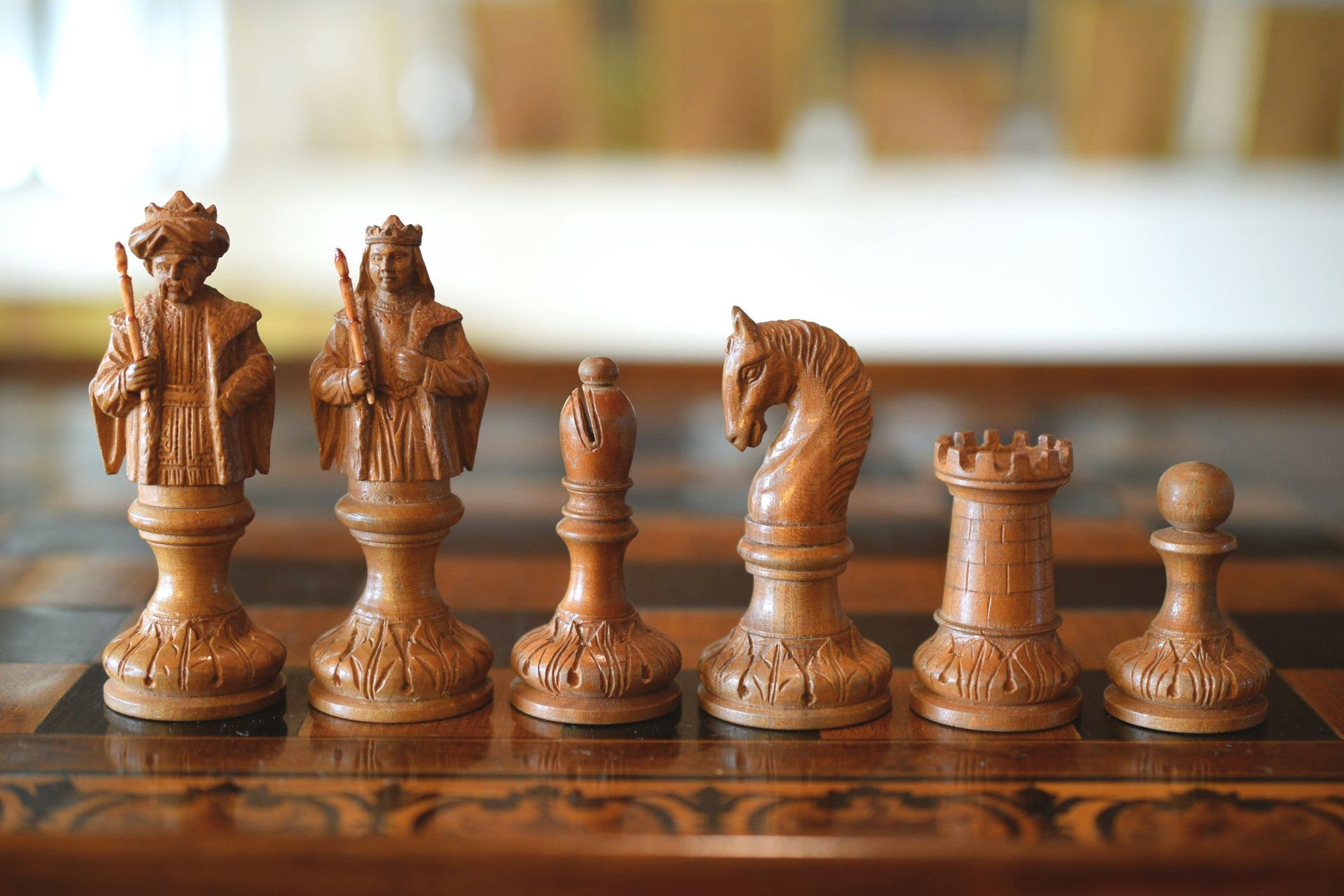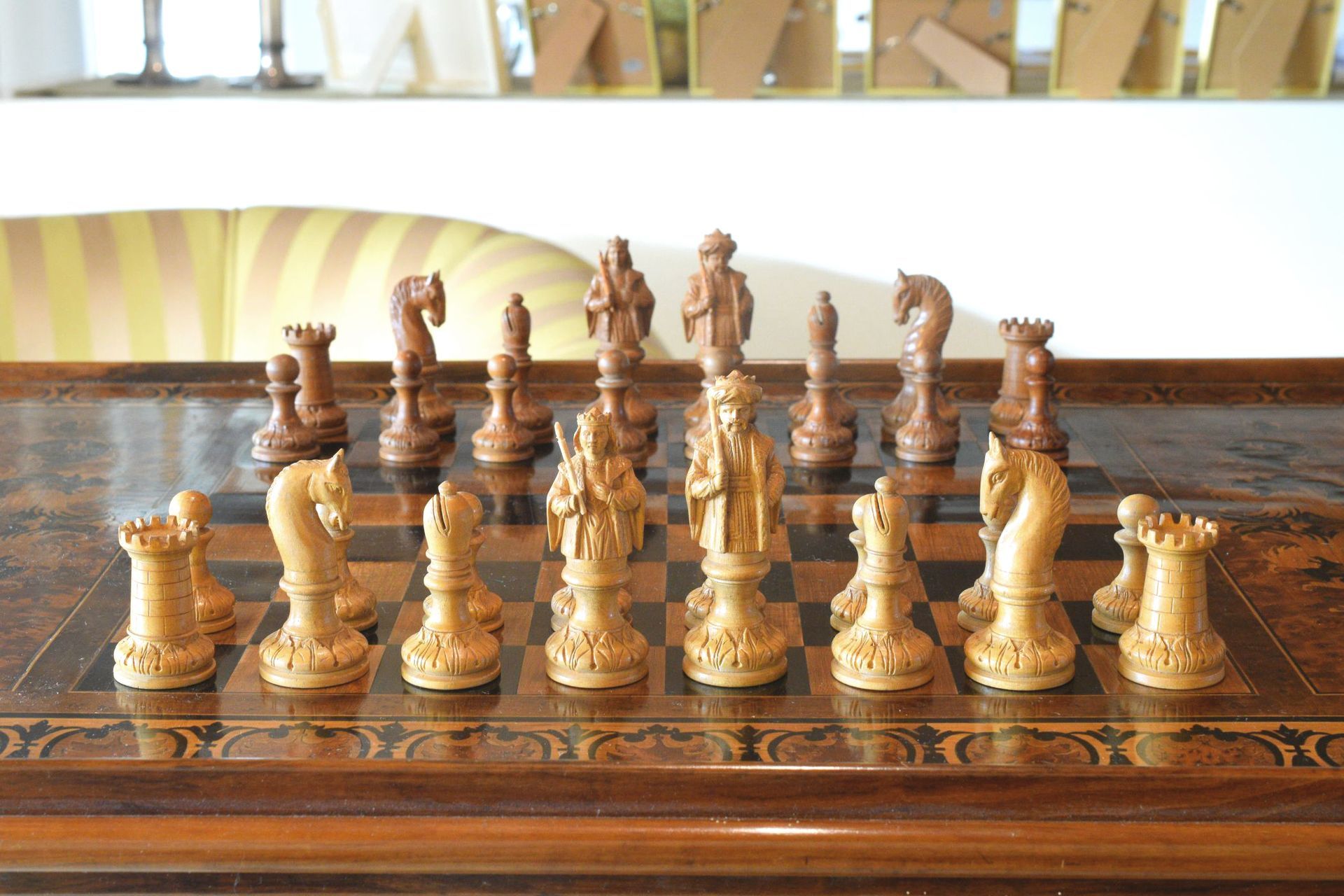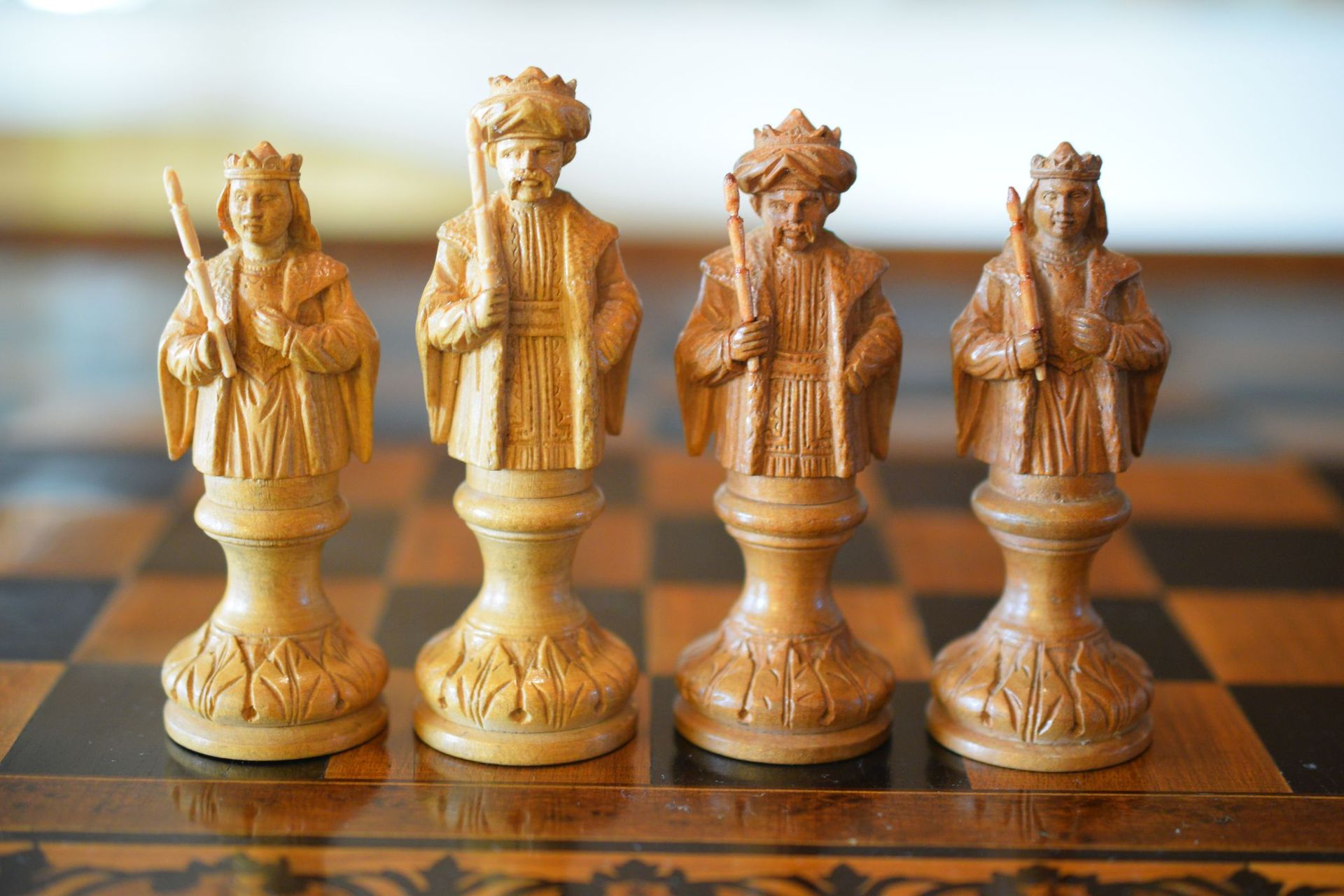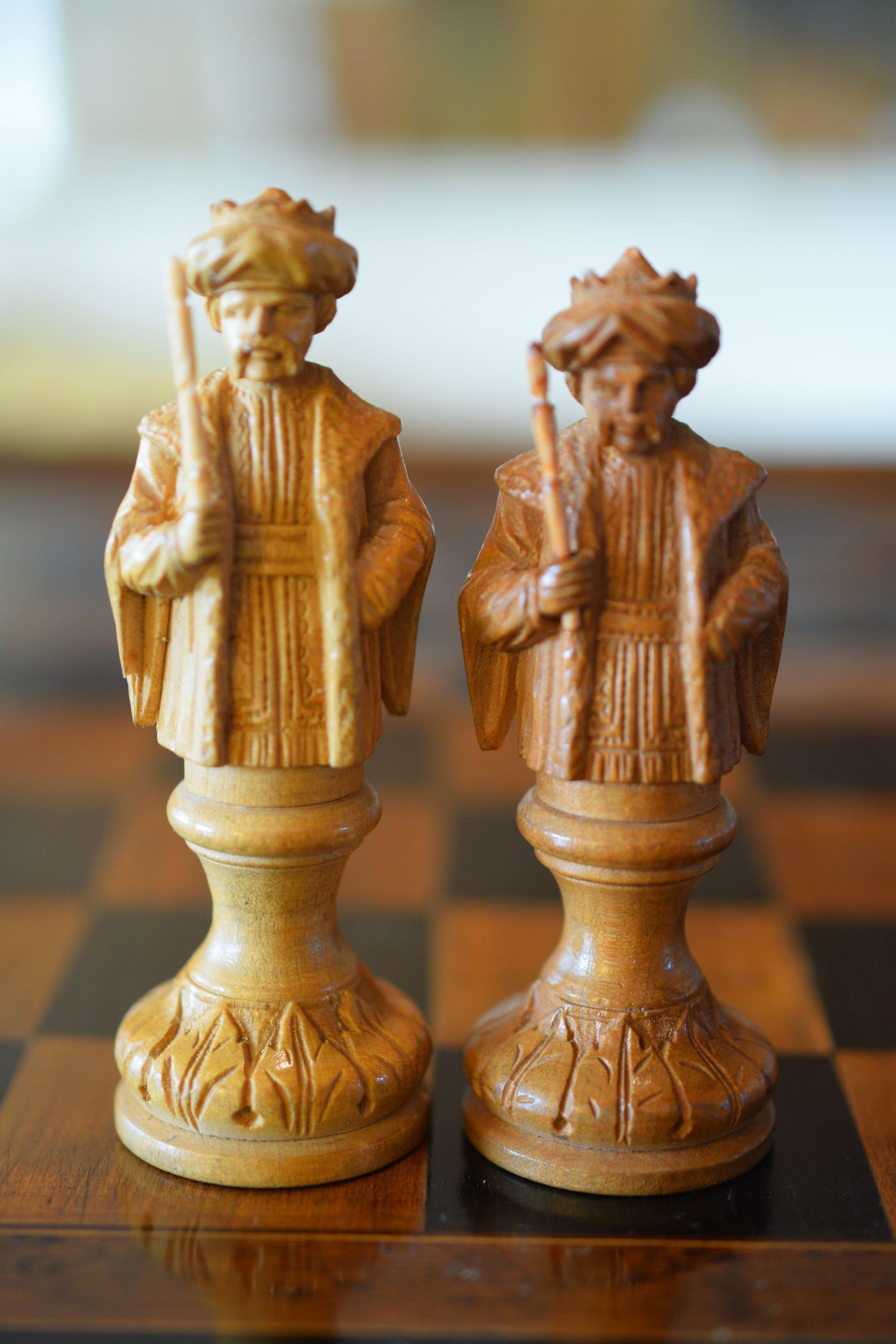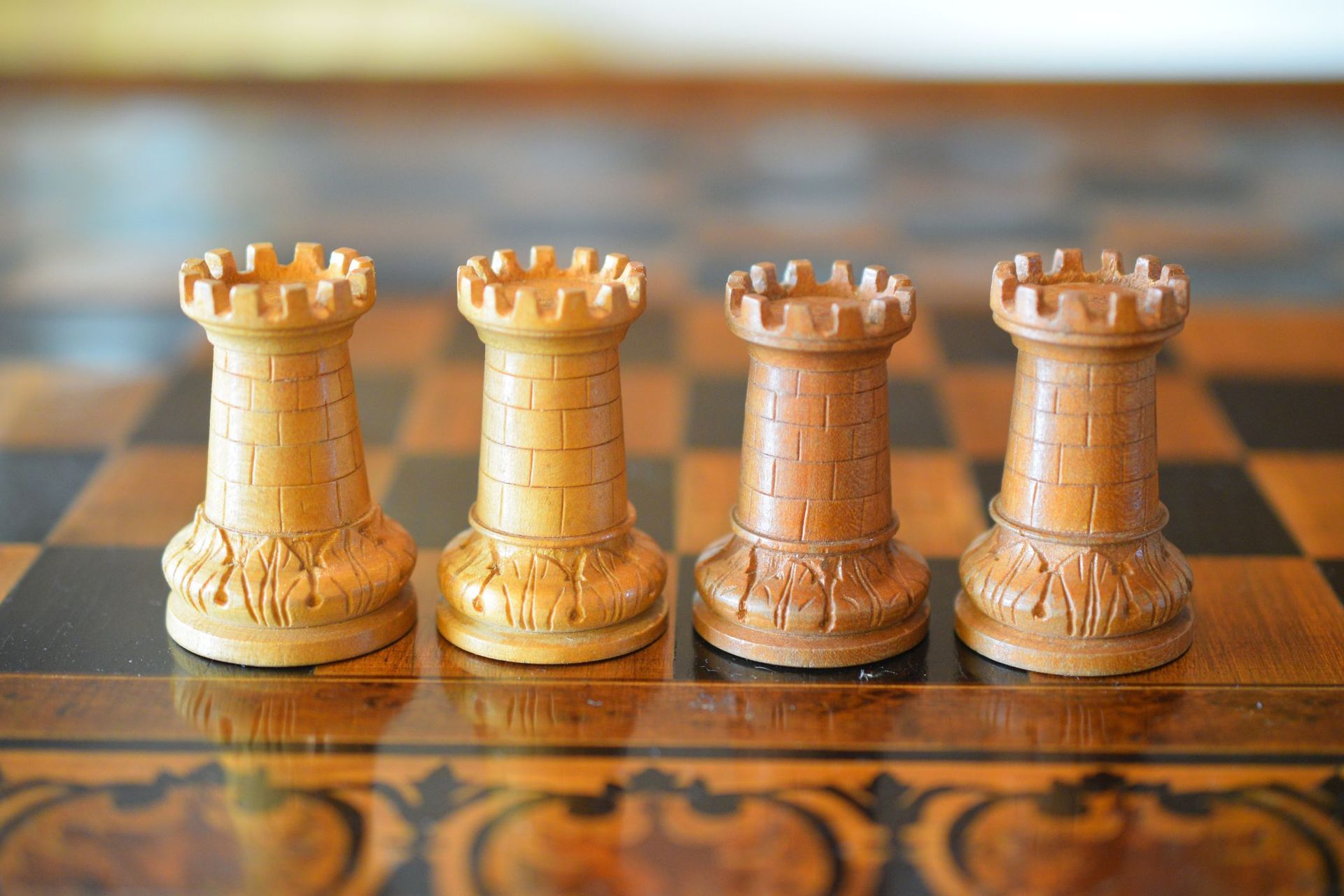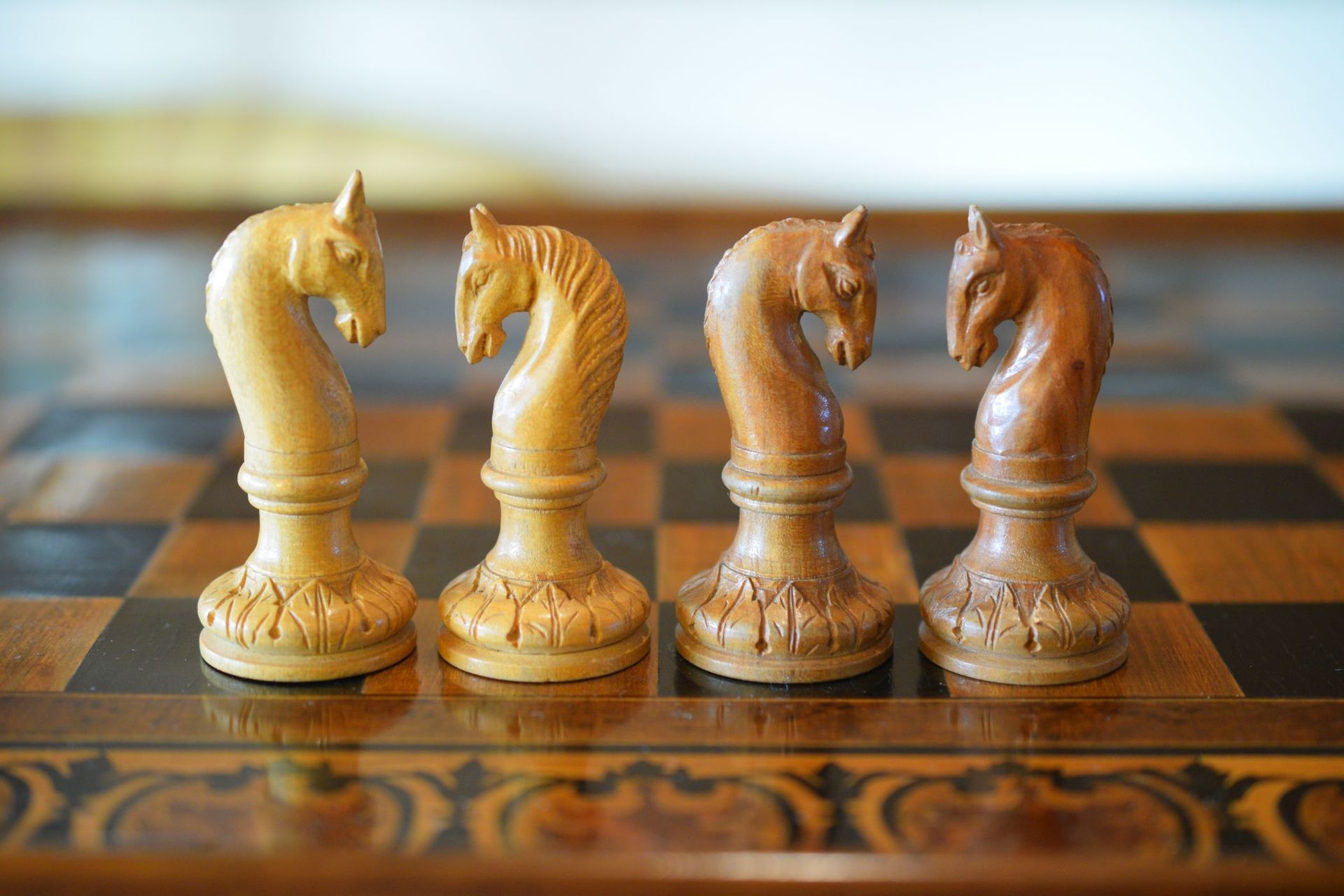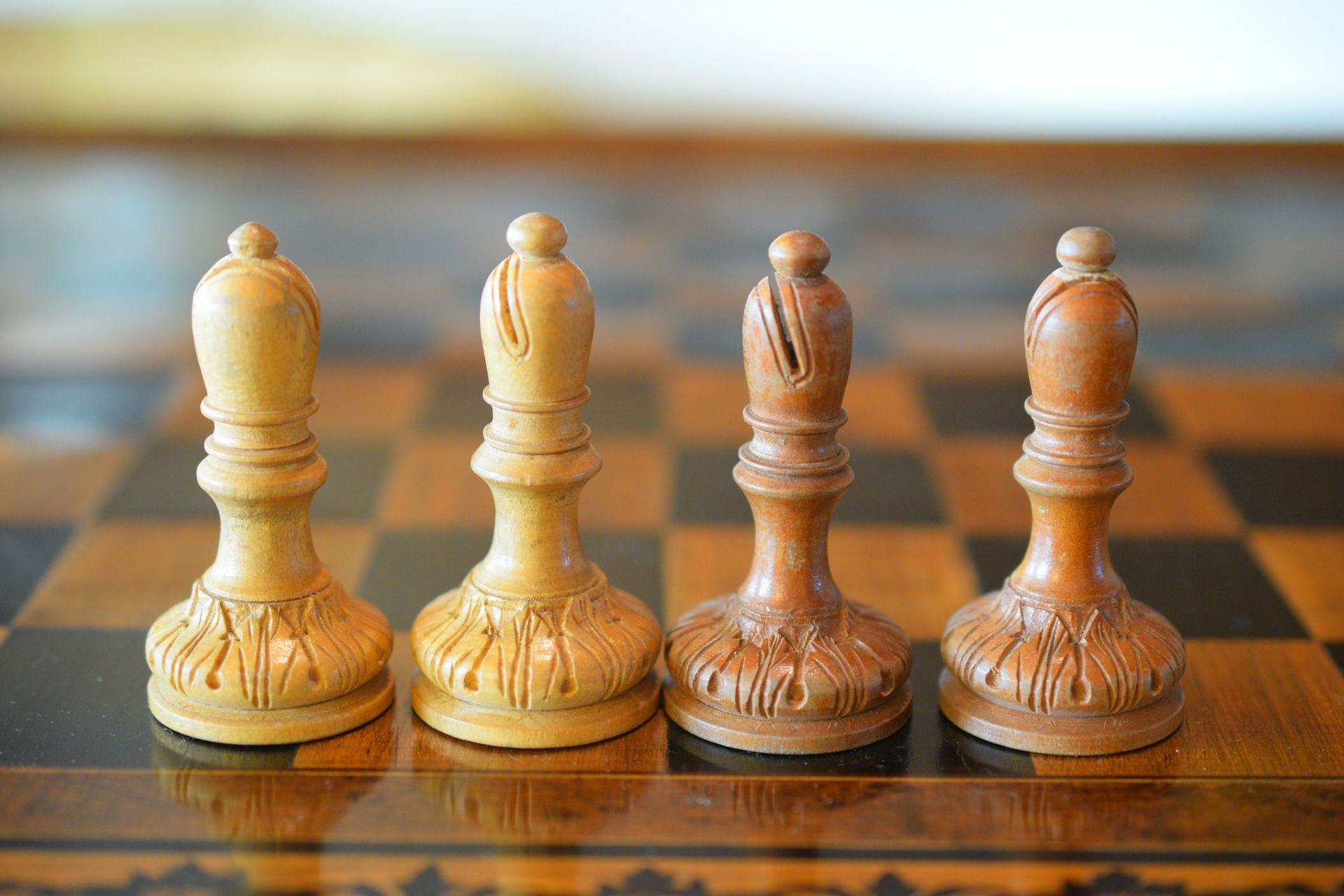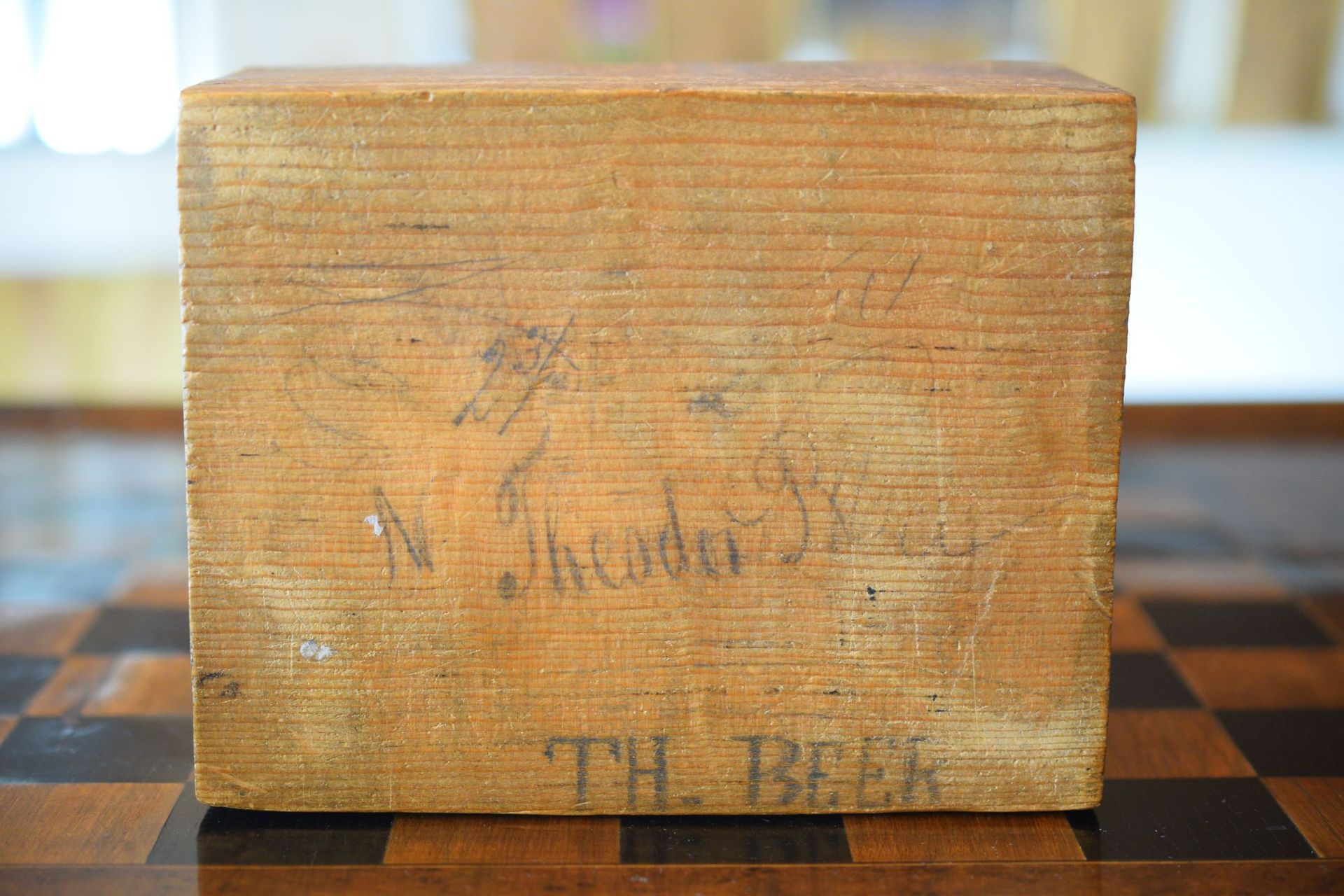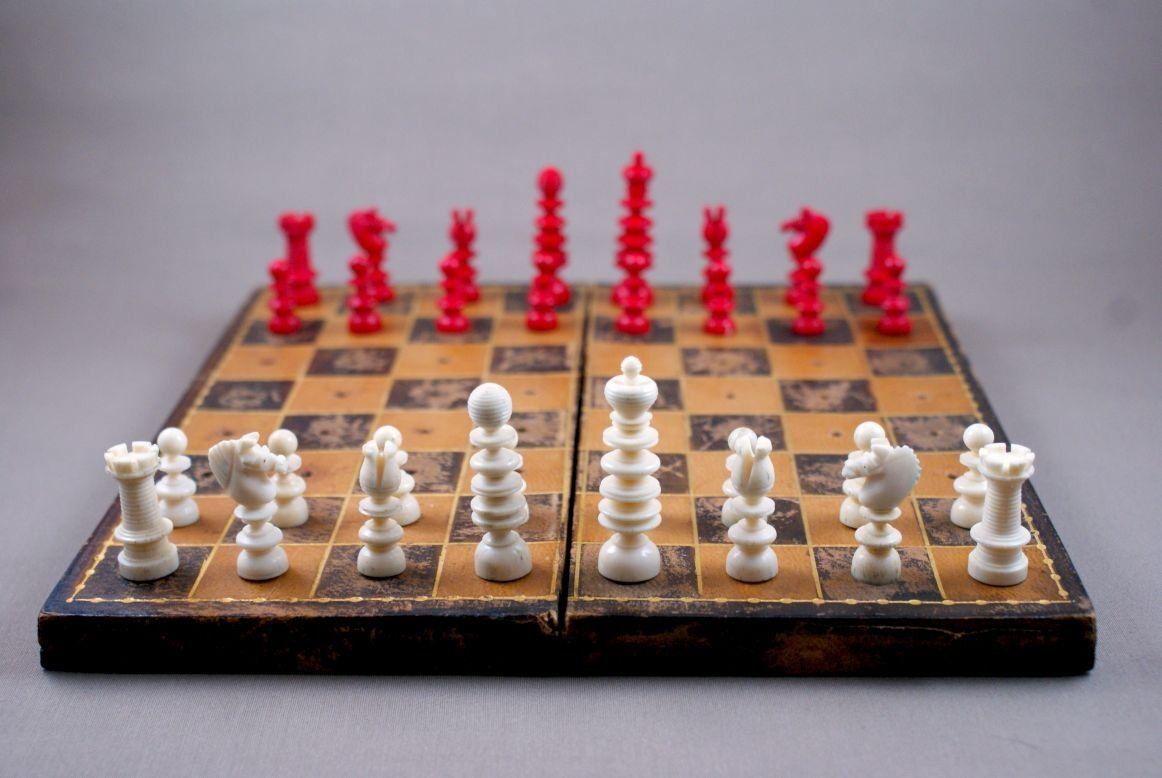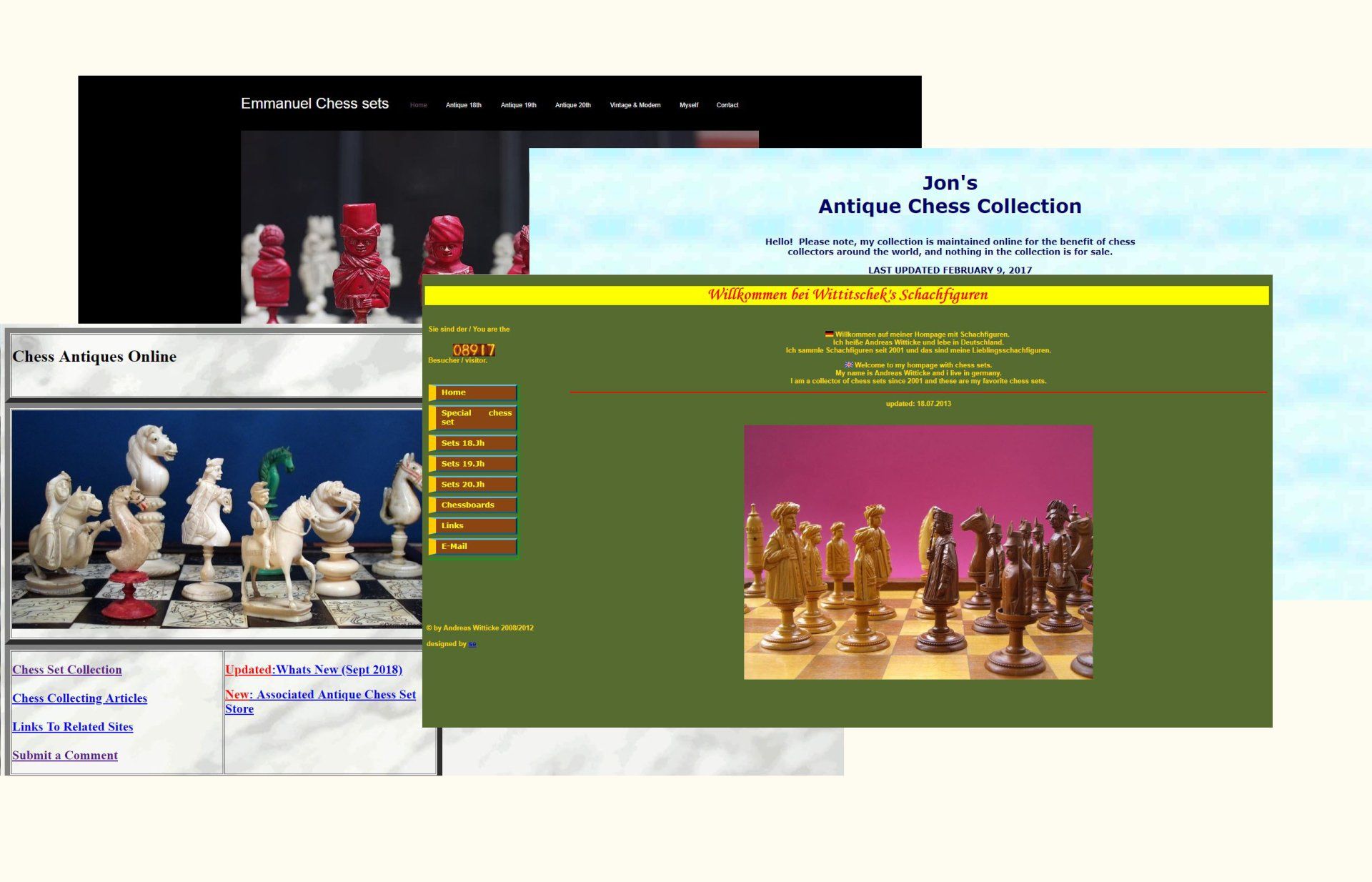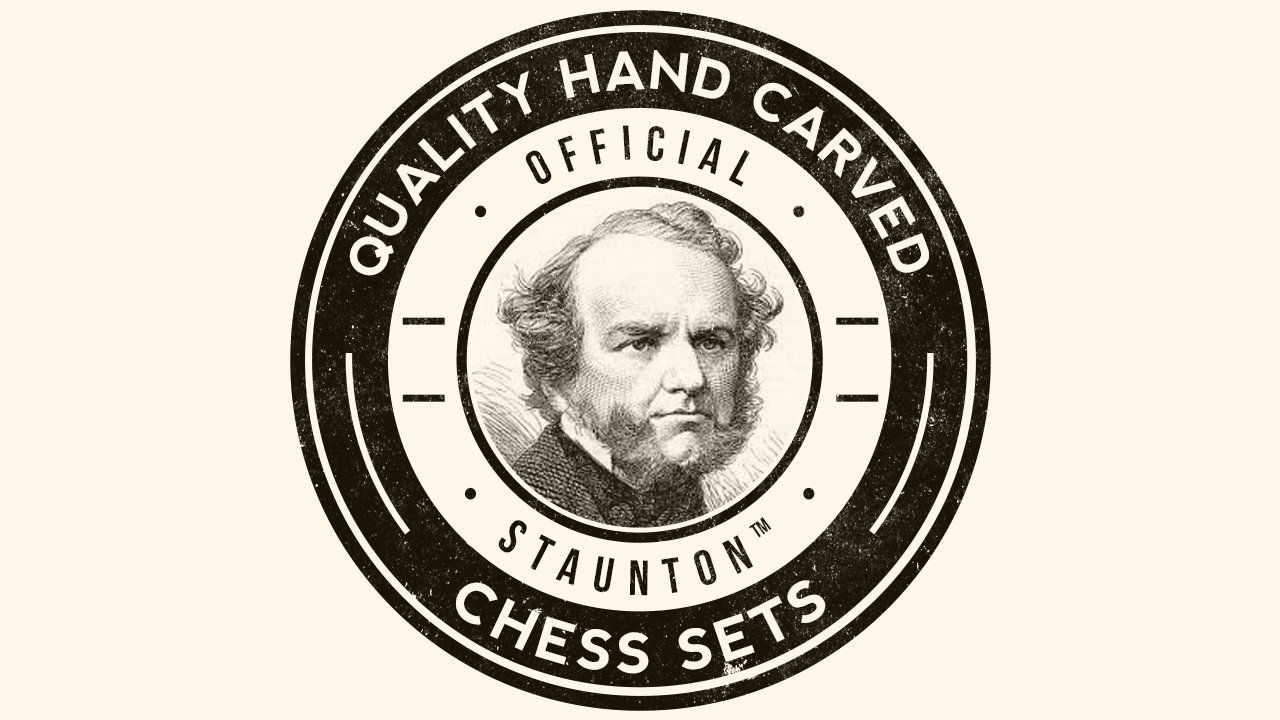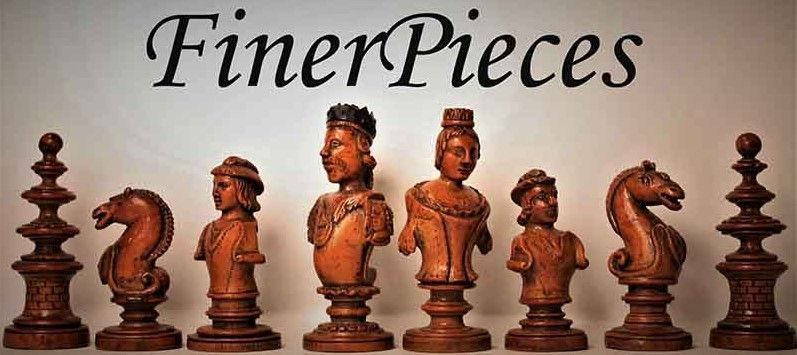Austrian Ottoman Chess Set, late 19th century
A very special and rare semi-figural chess set, in which the kings on both sides are shown as Ottoman rulers. The set was very likely made in Austria in the late 19th century. The chess pieces are carved and turned from boxwood for the white pieces and probably fruitwood or palisander for the dark pieces. The kings as busts on a circular base with a fur-trimmed gown and horseshoe moustaches wearing a turban with a crown on top. The queens on similar bases and likewise in gown wearing a veil with a coronet on top. Both kings and queens holding scepters in their right hand. The bishops with mitre cuts. The knights as inclined horses' heads, which have a somewhat unusual, slightly arched forehead. The rooks as towers with carved masonry joints. The pawns with spherical heads. The bases of all pieces are ornamented with carved leaves.
What is probably as interesting as the set itself is its probable provenance. The set came in a wooden box with two inscriptions in ink or pencil on the underside, one of which reads ‘Theodor B.’ and the other ‘Th. Beer’. The fact that this style of chess pieces and carving is commonly associated with Austria and the fact that I bought the set from a French antiques dealer just west of Geneva across the French border makes me believe that the inscriptions refer to Theodor Beer as its former owner. He was born in Vienna on 27 March 1866, hence of Austrian nationality, but later moved to Montreux/Switzerland on the east side of Lake Geneva in his house "Villa Karma", which his friend Adolf Loos had rebuilt for him between 1903 and 1906.
Theodor Beer was the son of the Jewish entrepreneur and banker Wilhelm Beer, but left the Jewish Community himself in 1890. After graduating from the Academic Grammar School in Vienna, he studied medicine at the universities of Vienna, Strasbourg and Heidelberg from 1883. After gaining his doctorate in 1889, he specialised in ophthalmology at the General Hospital in Vienna and then worked at the Institute of Physiology at the University of Bern. Research visits took him to Naples in 1893/1894 and to Cambridge in 1895. During this time he became known for his work on the animal eye.
In 1896, Beer qualified as a professor of comparative physiology in Vienna. The following year, he began a close collaboration with the physiologist Albrecht Bethe and the biologist Jakob von Uexküll. With his studies on human organs, he contributed to the establishment of behaviourism and was awarded the prestigious Lieben Prize in 1900 for his work on the accommodation of the eye. In Vienna, he maintained close contact with Sigmund Freud and Arthur Schnitzler and was appointed associate professor in 1903. In that year, Theodor Beer commissioned the young Adolf Loos to remodel the ‘Villa Karma’ near Montreux in Switzerland. During this time, he also met Bertha Eckstein, whom he courted for years.
In 1896, Beer qualified as a professor of comparative physiology in Vienna. The following year, he began a close collaboration with the physiologist Albrecht Bethe and the biologist Jakob von Uexküll. With his studies on human organs, he contributed to the establishment of behaviourism and was awarded the prestigious Lieben Prize in 1900 for his work on the accommodation of the eye. In Vienna, he maintained close contact with Sigmund Freud and Arthur Schnitzler and was appointed associate professor in 1903. In that year, Theodor Beer commissioned the young Adolf Loos to remodel the ‘Villa Karma’ near Montreux in Switzerland. During this time, he also met Bertha Eckstein, whom he courted for years.
However, the sportsman, amateur photographer, occasional feuilletonist and bon vivant was considered a controversial figure in parts of Viennese society. His academic career came to an abrupt halt in 1904/1905 due to accusations of sexual harassment of two teenagers, which led to his dismissal from the university despite pleas for clemency. Karl Kraus wrote in the ‘Fackel’ about the questionable court case, which was accompanied by anti-Semitic comments in the press and ended in autumn 1905 with a conviction for ‘fornication against nature’ and a prison sentence. Loos, who was himself a defendant in a similar trial more than 20 years later (although he got off much more lightly), supported his client and is said to have taken pornographic pictures of Beer. His wife Laura Beer (born Laura Eissler in 1883, daughter of a wholesale merchant and mathematics student), who also defended her husband and had even physically attacked one of the plaintiffs, Regierungsrat Dr Heinrich Steger, took her own life in 1906. He also had a long-term love affair with Dagmar Zidlicky, whom he married in 1916.
Beer then retired to Switzerland and worked again at the Naples Zoological Station between 1910 and 1914. During the First World War, he was called up for military service and converted his entire private fortune into war bonds. He took his own life in Lucerne in 1919, left destitute and without a place to live.
(all information on Theodor Beer cited from

